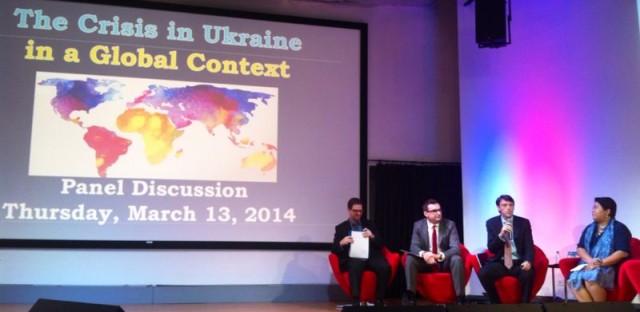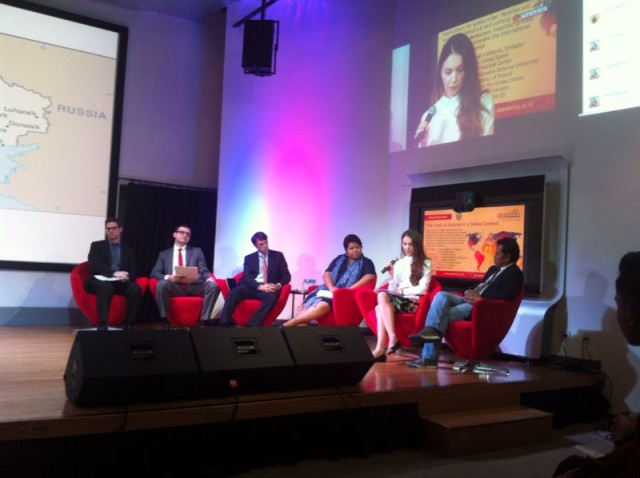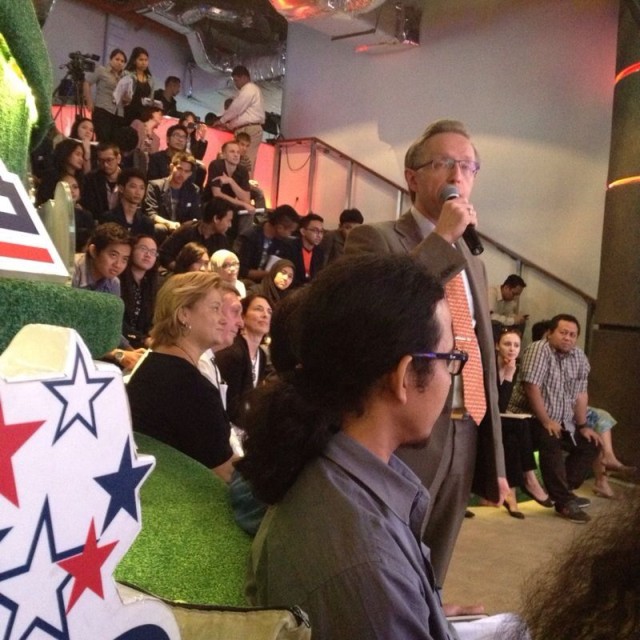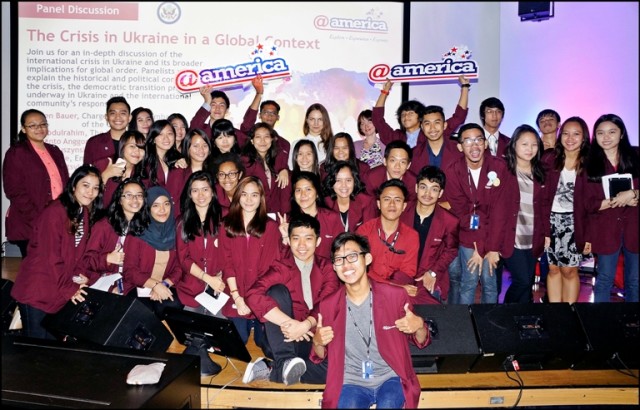IR Binus at @america: A Discussion on the Ukraine Crisis
Thursday, 13 March 2014, the International Relations Department joined an in-depth discussion: “The Crisis in Ukraine in a Global Context” organised by @america and moderated by Ima Abdulrahim from The Habibie Center. The discussion which was opened by the US Embassy Charge d’affaires, Kristen Bauer, emphasised not only the crisis itself, but also its broader implications on global order. Around 60 Binusian IR students, including the sophomores who take the Security Studies stream, had the opportunity to actually hear directly the views of all 5 panelists (Kusnanto Anggoro from Indonesia Defense University, Maciej Duszynski from the Embassy of Poland, Casey Mace from Embassy of the United States, Tetiana Motsyk from Embassy of Ukraine, and Florian Witt from the Delegation of the EU) on the historical and political context of the crisis, the democratic transition process underway in Ukraine, and the international community’s response.
Tetiana expressed her and the Ukrainian government’s great disappointment over Russian aggression on Crimea. She stated that the aggression which has started since 28 February 2014 and has killed over 100 Ukrainian is totally unacceptable. The Ukrainian government strongly condemns the use of force to resolve any kind of conflict with tanks, artillery, and boots on the ground. Similar to Tetiana, the representative from the EU, Poland, and US embassy in Jakarta also argued that the Russian action is of violating the U.N. Charter and several treaties. They also urged Moscow to pull back its approximately 20,000 troops in the Crimean Peninsula to barracks immediately and to start a peace dialogue to tackle the conflict.
The people in Crimea will hold a referendum on whether to break away from Ukraine and become part of Russia 16 March 2014. Regarding plan, Tetiana stated that Ukraine has not authorized this Sunday’s referendum in Crimea. She continued declaring that this referendum will have no validity, and cannot form the basis for any alteration of the status of Crimea. Again, the representative from the EU, Poland, and US embassy echoed the Ukrainian view by stating that their countries will not accept the referendum, and that the referendum cannot be regarded as legitimate, especially against the background of Russian military intervention. Kusnanto as an academic and a military expert stated that the crisis in Ukraine is evidence of the use of coercive measure as a political solution. Interestingly enough, he also argued that the rising tension in Crimea is good, as long as it can be maintained without violence. He also mentioned that the crisis in Ukraine has created an opportunity for a new alliance building in Asia Pacific region. He believes that cold war is good, as long as it does not go hot.
At the end of the discussion everyone was surprised by the presence of the Russian Ambassador for Indonesia, H.E. Mr. Mikhail Yurievich Galuzin at the venue. He conveyed disappointment to all panelists and @america for not inviting the Russian Embassy to participate in the discussion. He disagreed on all of the accusations and criticisms over Russian action in Crimea delivered during the discussion. He wished he could have the opportunity to respond the criticism from the panelists. Ima as the moderator took the initiative to invite Mr. Galuzin and all the panelists to have another round of discussion at the The Habibie Center in the near future.







Comments :